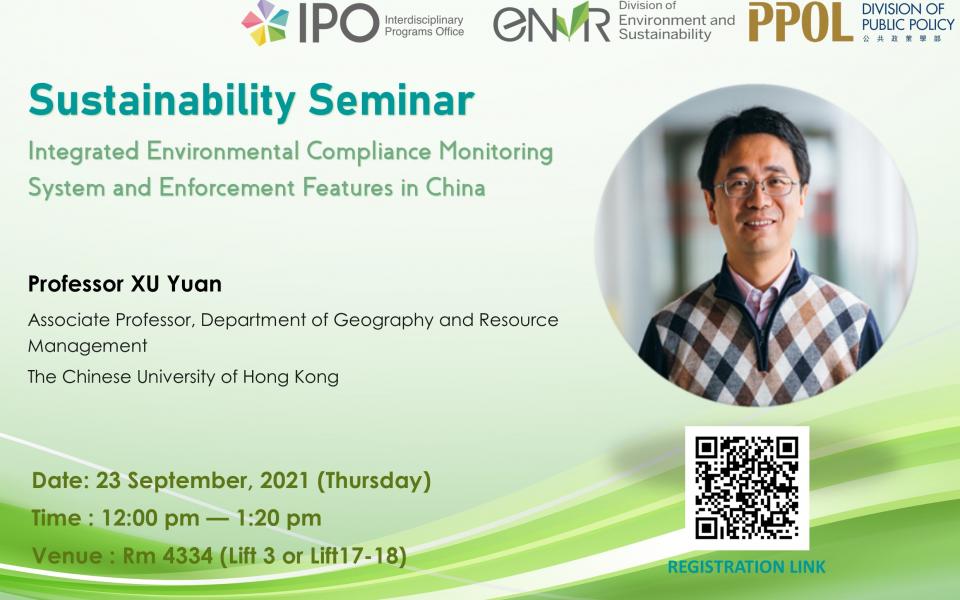Interdisciplinary Program Office (IPO) Sustainability Seminar Series Fall 2021 - Integrated Environmental Compliance Monitoring System and Enforcement Features in China
Supporting the below United Nations Sustainable Development Goals:支持以下聯合國可持續發展目標:支持以下联合国可持续发展目标:
Data is the basis for the effective implementation of environmental policies. However, the traditional monitoring, reporting, and verification system (MRV) requires significant human and material resources and control over subjective data manipulation. Satellite data, or Big Data in general, can provide important complements with objective observations and much lower monitoring costs per polluting source, but their accuracy has not reached a level to replace the MRV system. This study established a theoretical model for integrating these informative yet imperfect data to screen for possible violations, and then using MRV or environmental inspections to target those suspicious polluters or regions for confirming environmental compliance statuses before issuing penalty. This integrated system can improve overall effectiveness and efficiency, making compliance more likely to become the norm. Based on this theory, this presentation will examine two case studies. The first one used carbon and nightlight satellite data to screen the attainment of China's CO2 mitigation goals at national and subnational levels in the 13th Five-Year Plan (2016-2020). Those provinces with poorer compliance could be targeted by the central government in environmental inspection. The second case adopted satellite SO2 vertical column density data to track the spatial and temporal patterns of compliance statuses with SO2 mitigation policies in coal-fired power plants since 2005. Furthermore, prominent features of China's environmental enforcement will also be discussed.
XU Yuan is an associate professor in the Department of Geography and Resource Management
and leads the Environmental Policy and Governance Programme in the Institute of Environment, Energy and Sustainability, The Chinese University of Hong Kong. He has published widely on energy and environmental policies and strategies, especially on their enforcement and compliance as well as related technological innovation and industrial development, covering fossil fuels and renewables. In contrast to central planning and rule-based governance, he developed a theory of “goal-centered governance” to understand China’s energy and environmental development. He built a theoretical model to integrate informative but imperfect satellite data into environmental compliance monitoring for enhancing its effectiveness and efficiency. He also initiated a research theme to internationalize CO2 capture and storage chains as a crucial carbon-neutral means especially for regions without convenient nearby CO2 storage sites. Before joining CUHK in August 2010, he received a Ph.D. degree in public policy from the Woodrow Wilson School of Public and International Affairs, Princeton University and was a postdoctoral research associate in the Industrial Performance Center, Massachusetts Institute of Technology. He also holds an M.S. degree in climatology, a B.S. degree in atmospheric sciences and a bachelor's degree in economics, all from Peking University.
